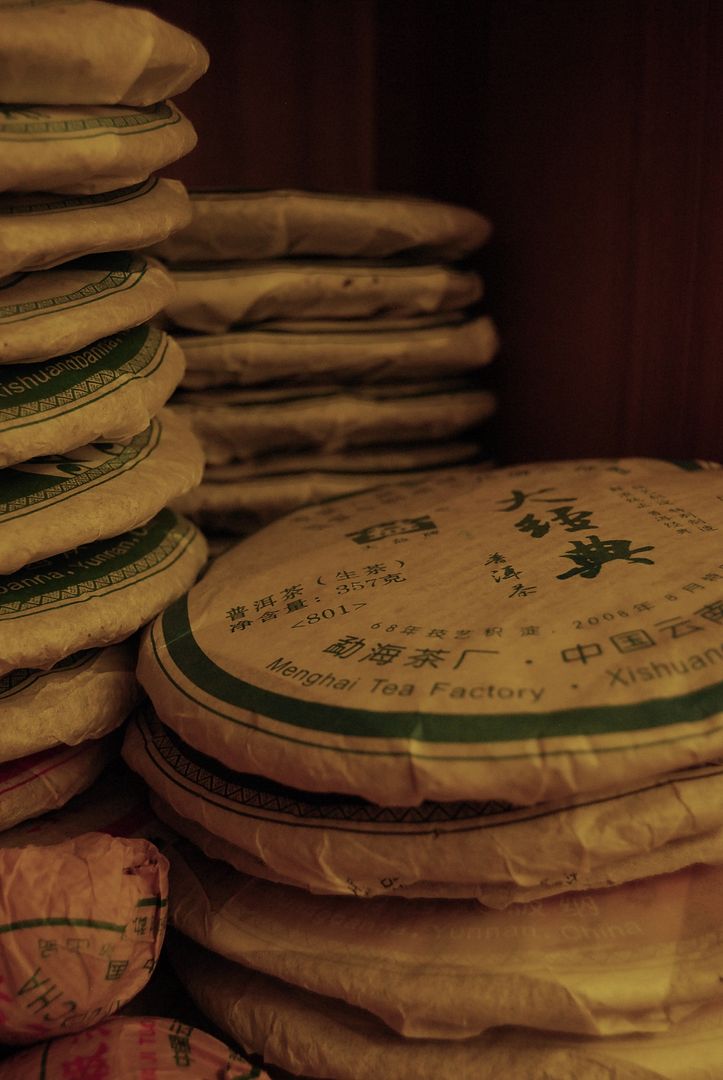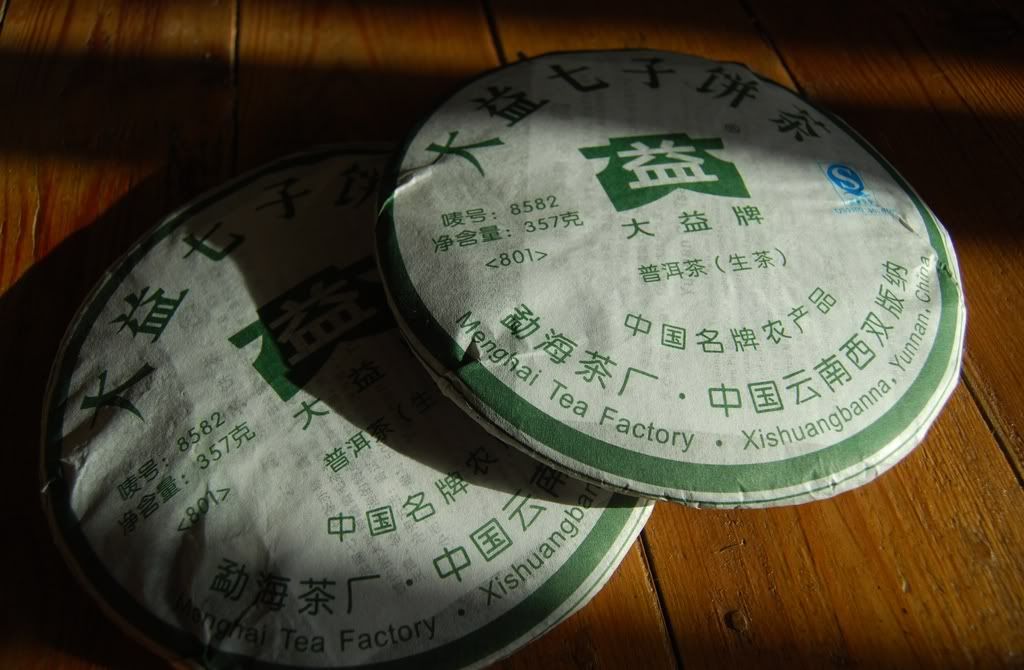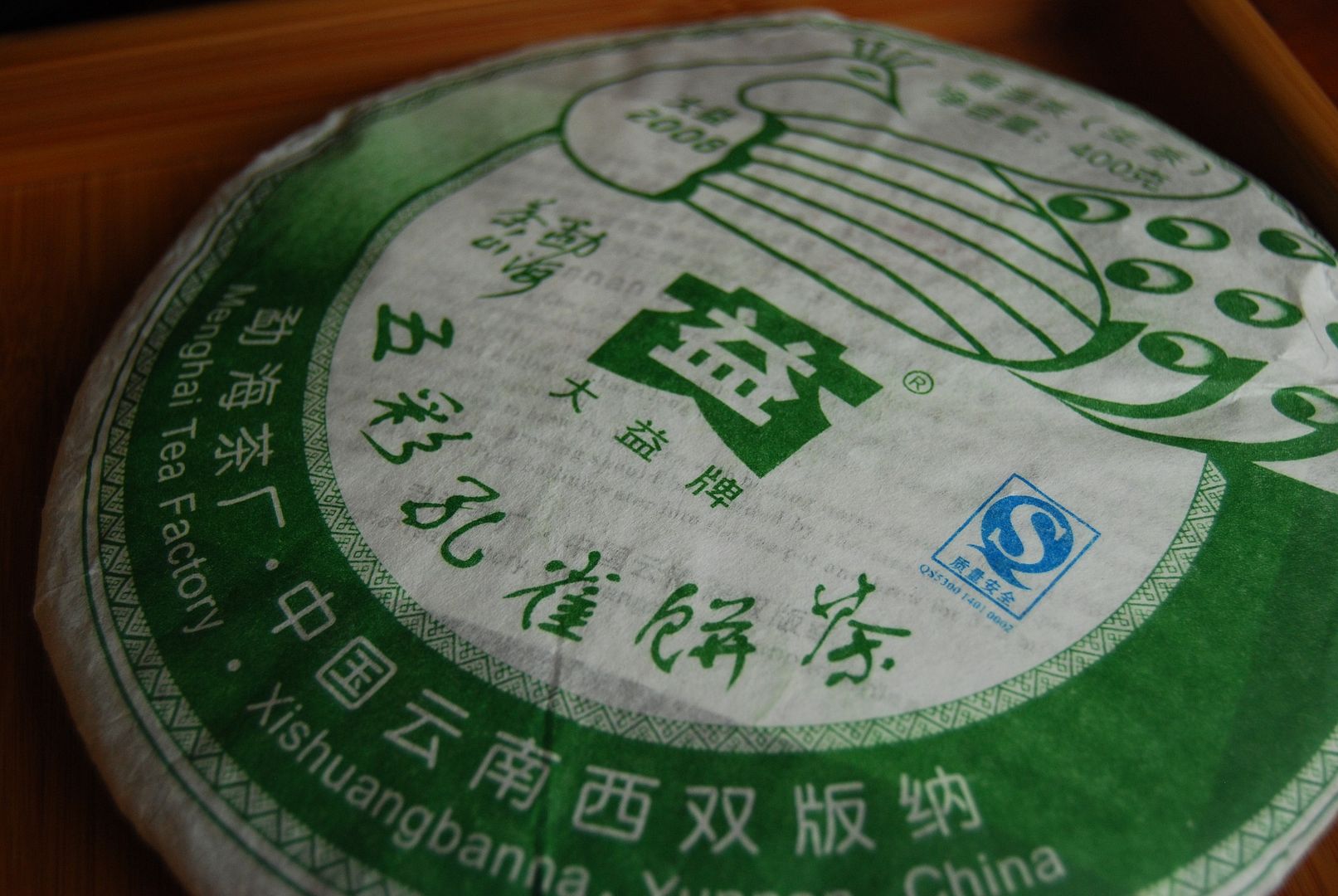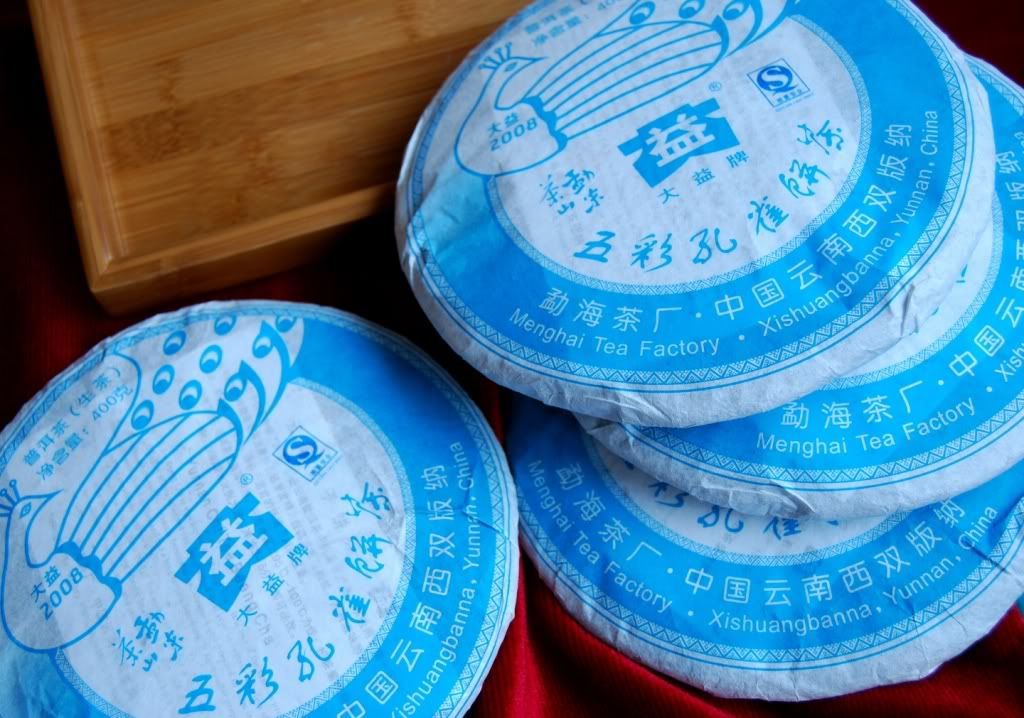The day of reckoning for some of my cakes is at hand. I selected five of my five-year-olds, which share a few common traits:
- they were all bought in 2008, with quite low prices;
- we bought our house in 2008, and so these cakes have known no other storage except for our house;
- they have remained untouched on our shelves since then.
Should you be of the mind to do so, Gentle Reader, you may wish to take a quick peek into my updated notes for the following five. I will summarise at the end of this page for your convenience.
The 2008 Dayi Dajingdian is the "Great Classic":
The 2008 8582-801 is the first batch of the classical 8582 recipe from 2008:
The 2008 Dayi "Menghai Kongque" is the "peacock of Menghai", one of a set of five:
The 2008 Dayi "Mengsong Kongque" is another cake from the same range:
Colour-balance rage!
The 2008 Xiaguan "Duling Fengsao" is a slightly-above-mainstream special cake from Xiaguan, infamous for its blackness akin to Baoyan:
What all five of these cakes also share is a truly surprising sweetness that has developed over the last five years. The raw aggression of their youth (and it was extremely aggressive in some cases) has attenuated, as if exchanged for this deep, penetrating sweetness. To varying degrees, they have acquired the humid "woody" characteristics of cakes that are turning the corner.
Each was remarkably encouraging. My journal, for more than one of the above, waxes lyrical about the sense of satisfaction that accompanies the realisation that we bought these cakes for very little outlay, and that they have become really very pleasant. Indeed, many of them remain quite inexpensive. The feeling of satisfaction that corresponds to buying low-priced, but decent, cakes and seeing them improve is, surely, the name of the game that we play.
The storage here in middle England is definitely not "dry": the cakes taste humid and have soft, woody bodies without the crisp "dryness" of less humid lands. However, nor are our cakes "humid" in the sense of south China, Singapore, etc.: we have none of the temperature that leads to hot, humid, spicy cakes, and here have something rather different - and, dare I venture, rather pleasant.
The conclusion is encouraging.






3 comments:
This post is inspiring me to start collecting young puerh. I've only ever bought one new cake, also a 2008, and it has been very interesting observing its development. I'll never forget the experience of the first time I brewed a baby puerh, filling the pot with leaves, not knowing better, only to become practically nauseous from the first sip!
Dear Joseph,
The encouraging part of this article, for me, is that all of the cakes were, and remain, low-priced. They are straightforward and unexalted, but they are good and they are developing well. It is, surely, a low-risk experiment to try this yourself, and I would encourage you to do so! It is a warm feeling to "raise one's own", no matter how basic the tea. You might be pleasantly surprised, as I was. Indeed, you might use it to evaluate your own storage conditions and, if favourable, gamble on some more expensive cakes.
Caveat emptor: I spend at least 50% of my time at the tea-table drinking the kind of young shengpu that you suggest you don't enjoy, so take it under advisement. :)
Toodlepip,
Hobbes
Hi there, Enjoyed the thread . . . Can I ask, if you use a dehumidifier or any other aids to aging tea? Or do you leave your tea to the natural environment of England? Many thanks!
Post a Comment